Erica Jong - Woman, Author, Icon and... Italophile
When one gets the chance to get close to an intellectual that has impacted the history of our customs in the way that Erica Jong did, one could really feel overwhelmed. Overwhelmed by the urgency to ask everything and touch upon all of the fundamental points. Also one wants to avoid falling into the trap of reproposing all of the labels attached to Jong’s groundbreaking body of work, from the revolutionary Fear of Flying (1973), to her last effort, Fear of Dying (2015). But it is also true that one should investigate why those labels were there in the first place and understand whether they were deceiving or not from the writer’s aesthetic world.
It is unsurprising that Erica Jong was labeled a feminist in the 70’s and that her works were considered milestones for women in the realms of gender studies and literature. The critics and the general public idolized her, criticized her, confronted her. Females praised her, females blamed her, males loved her, males hated her; that is how significant and controversial her writing is. And her writing is pretty much like her persona, multi-layered, complex, outspoken, open hearted and savage at the same time.
Over the course of this interview we wanted to dig deeper into the complexity of the rules of Jong’s poetic world trying not to be deceived by labels, but also acknowledging them. We also wanted to highlight Jong’s special ties with Italy. In order to do so, I tried going back with my memory to the very first time I ever heard of Erica Jong in Italy because the American writer’s first book, the legendary Fear of Flying, did literally fly fearlessly circling the world and falling into the lap of so many women of that generation.
It fell into my mother’s lap as well, when she was in her 30’s, just moved from a small province of the south of Italy to the sparks of Milan’s metropoly. I remember watching my mother reading that book, I remember being fascinated by that title, Fear of Flying, it got to me instinctively, like some sort of epiphany. Of course I had a fear of flying even though technically I didn’t have a fear of flying. I did have so many different fears of flying.
One of those fears was not being able to oversee and have an understanding of my mother’s feelings at that time, of the loneliness of a woman often left alone with her only child in a world dominated by men that was perceived as scary and intimidating. It was because of the urgency of peeking into that world that I read that book. Reading it transformed something inside of me, something yet undecipherable at that time, and it left me with so many questions. Some of them I would eventually asked my mother, some others were answered by life. Some others left unanswered.
Now in times where the global world is refocusing again - though it should have never lost that focus - on women in a man’s man’s world, some of those questions have arisen again and I felt a renovated urgency to let them be answered. And I fearlessly dared to ask some of them to Mrs. Jong in person.
Fear and Change – how do you explore that in your writing and how do you face fear and change in your personal life?
When it came time to view my first novel through the lens of age, I realized that Isadora would have changed a lot– as we do change – and in writing FEAR OF DYING, I had to find a way to tell her story honestly. It seemed to me that to write about female friendship as life goes on was very important. So, although FEAR OF DYING is not a sequel to FEAR OF FLYING, I wanted to include Isadora, who is seen as a dear friend and advisor, rather than the main character of the novel.
FEAR OF FLYING shows a young, intelligent woman, Isadora Wing, trying to find her identity and recognizing that she can be strong on her own, without a man. It deals with love and life and understanding. FEAR OF DYING shows Vanessa Wonderman battling with the understanding that with the loss of her parents and the near loss of her husband – she is in a different stage of life. Although she panics and seeks happiness elsewhere, with the help of time and Isadora Wing, Vanessa recognizes that she loves her husband and does not need sex outside of her marriage to be happy.
These are different novels and showcase women in different stages of life but both embrace the importance of change. Love and death will always be timely because we are driven by the two – both change us. I fear losing the people that I love but accept that life brings wisdom and understanding and through those changes, brings contentment too. I have a full life – with my writing, my career, my husband, daughter and grandchildren. I realize how blessed I am to have such a full life.
Are we in a period of regression in regards to feminism… as a feminist in the 70’s did you think we’d be past all of this by now?
I thought we would be much farther along than we are now. The election of Trump showed that many people would love to return to the bad old past when women were under the thumb of fathers and husbands and sons. I find it almost unbelievable that any women could wish for that but apparently some women do and they fail to realize what a trap it is. But as the younger generations assert themselves, I feel more hopeful. Young women do not accept a return to the past.
We are now experiencing a global revival of feminism. In the USA –Trump has brought millennials to see that we need an equal rights amendment, health care for women, children, aging parents. We are fighting for our right to be recognized under the law. The insane Trump administration has shown people that we need more wisdom and flexibility in politics. In the UK too, a conservative backlash and an ill considered BREXIT have stimulated the revival of feminism. Wherever right wing leaders make noise, we can see feminism rising again. In Pakistan, in India -- feminism is the way forward. Populous dictators show us all that we must move toward the future, not the past. We embrace our male allies in making the world more just.
Is the zipless fuck possible in this era of concern about boundaries, consent, etc? Also, do you think the zipless fuck depended on men and women sharing a different idea about sex than they have now?
The zipless fuck was always a beautiful fantasy. It was never meant to be taken literally. Sadly, there were people who took it literally and thought I was advocating for sex without love. I never liked sex without love and I think that may be true of many people – male and female. Perhaps men go through a period of notching their bedposts and liking quantity and not quality. Maybe some women do too. But as we mature and know ourselves better, we look for mutuality in our loves.
What is your take on the #metoo movement? Do you agree with the French women (Catherine Deneuve, Brigitte Bardot) who claim it will quash all flirtatiousness between men and women?
I applaud the courage of people who share their experiences to help avoid the same thing happening to others. The #metoo movement is important in our culture. Not all men are rapists. For every rapist there is a man who wants his lover to be a friend and an equal partner. The rapists get all the attention but thank Aphrodite they are not the majority!
Tell us when and how Italy became a part of your life and what it represents for you.
My parents adored Italy before me. When I studied Dante at Barnard College I determined I must read him in Italian. My professor Maristella de Panizza Lorch was a great influence on me in college. I began to read poetry in Italian and began to experiment writing poetry in la bella lingua. When I was nineteen, I travelled to Florence to study Italian literature, history and language for two and a half months. It was an important time for me. I lived in the Torre di Bellosguardo looking down on the city of Florence. I made many Italian friends who are still important in my life.
Who are your most beloved Italian authors?
Elena Ferrante, Leopardi, Dante, Elsa Morante, Natalia Ginzburg, Oriana Fallaci, Primo Levi, Luigi Barzini, Ludina Barzini, Carlo Collodi (totally ruined by Disney), Umberto Eco.
Can you tell us about your encounter with Umberto Eco?
I was asked to introduce Umberto Eco to the American audience and of course I did so. During an unforgettable evening at the Istituto Italiano di Cultura I talked about my love for Umberto’s first novel – Il Nome della Rosa and he proceeded to overtalk me for the next two hours, not allowing me to say a word. He was a bit of a male chauvinist pig and totally ungrateful for my praise. Was this a relationship? I suppose it was a sort of relationship that educated me about the perils of praising male writers.
The Fernanda Pivano Award for American Literature is an Italian literary award for American authors and it is named in honor of Fernanda Pivano, representing the work of spreading American literature that Pivano undertook in Italy. How significant was it for you to receive the award?
Nanda was a great friend and wise interpreter of my work. She understood how hard it was to be a woman writer in a world of men. We came to love each other very much. I miss her. To have won the first award bearing her name remains very important to me.
What do you think is the perception of today’s Italian reader of contemporary American literature and vice versa – how is contemporary Italian literature perceived here in America?
Italians and Americans adore each other. In many ways we are cut from the same cloth. We love innovation – in food, in literature, in language. We love music and love to make music with language. I think Italians and Americans are genetically part of the same tribe. It’s a love story.
What is your relationship with the Italian translators and publishers of your books?
I have been blessed to have great translators. Marissa Caramella translated FEAR OF FLYING with great humor and verve. Happily, Bompiani has my entire backlist in Italian. I have lucky relationships with my publishers and am very excited to work with Beatrice Masini, the new direttore of Bompiani.
We heard you are working on a TV adaptation of one of your works. Can you give us a preview about that and about your future projects?
My favorite novel has always been FANNY: Being the True Adventures of Fanny Hackabout Jones. It’s an 18th century picaresque about an orphan who has many adventures which lead to a happy ending. It will soon be a TV series directed by Julie Taymor who did THE LION KING and many other wonderful movies and plays. The first episode has been written by British writer, Olivia Hetreed and it is wonderful. I look forward to seeing it come to life.
---
A special thank to writer, author and editor Kristy Eldredge for her precious contribution to this interview.































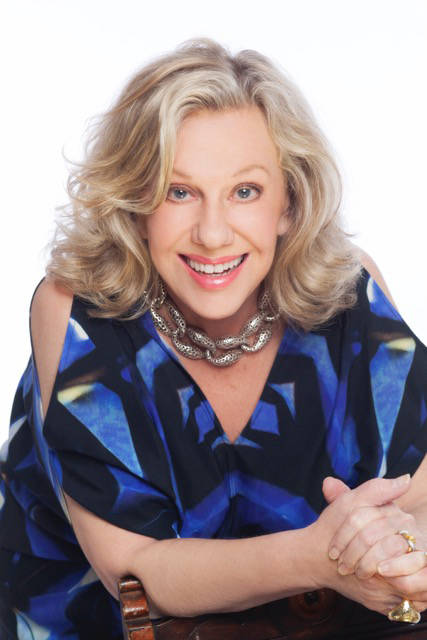
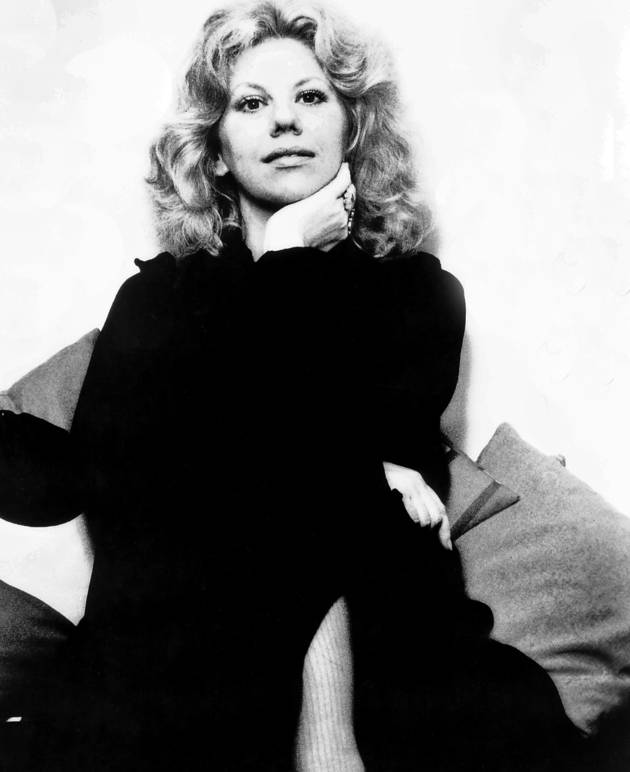
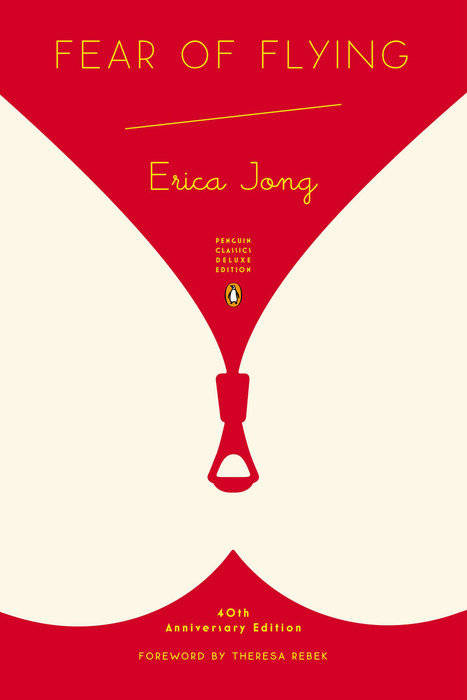
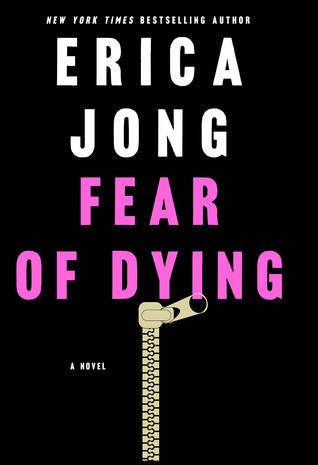
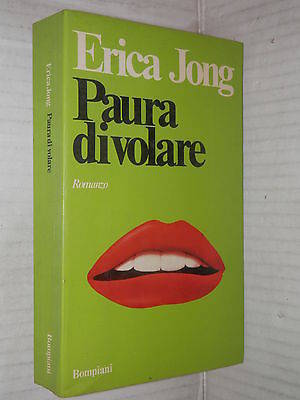
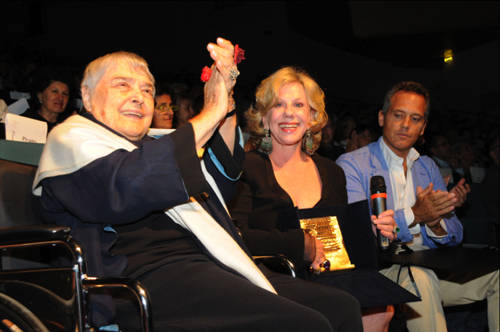

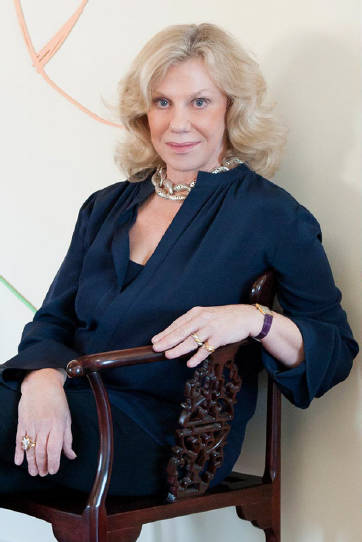







i-Italy
Facebook
Google+
This work may not be reproduced, in whole or in part, without prior written permission.
Questo lavoro non può essere riprodotto, in tutto o in parte, senza permesso scritto.